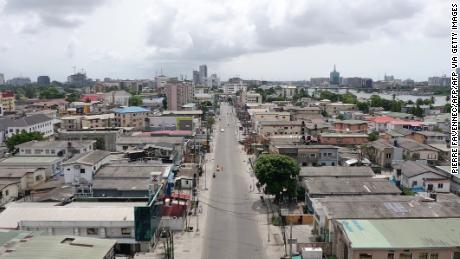By Martin Cole-
Most Africans will go hungry on 14 day lockdowns, according to a survey. The Africa Centres for Disease Control and Prevention research was conducted to help governments map out future policies on how to tackle coronavirus. It warns that if measures are not adapted to local needs, there is a risk of unrest and violence.
The report, entitled ‘Using Data to Find a Balance’, expresses the difficulties of maintaining strict lockdown policies on the African continent. The report says that the initial response in Africa was guided by the experience of countries that first saw the surge in cases, and advises countries around the world to continue to learn from each other’s experiences. ”As the pandemic continues AU Member States should chart their own courses, tailored to the severity of the pandemic, the report states.
Conducted by The Partnership for Evidence Based Response to COVID-19 (PERC), between late March and mid-April in 28 cities in 20 countries, its overall objective is to assess the impact of the crisis and people’s attitudes to restrictions that had already been imposed in some areas.
It comprises of a consortium of global public health organisations and private sector firms. It is a public-private partnership that supports evidence-based measures to reduce the impact of COVID-19 . It brings together findings from a survey conducted March 29-April 17, 2020 in 28 cities across 20 AU Member States. The report includes epidemiological measures of disease transmission and indicators of population movements and unrest, among others.
Hardship
The survey concludes that a large share of the population anticipate that a prolonged quarantine would result in food insecurity and grave financial hardship. These measures are a potent tool for curbing the spread of COVID-19 but have social and economic costs, requiring policymakers to weigh lives against livelihoods. The report suggests ultimately choosing an optimal set of policies means finding a balance measuring the rapidly evolving impact of the virus, adapting preventive measures to local needs and capacities, and mitigating the measures’ most adverse effects.
“The proliferation of peaceful protests demanding government relief is evidence of the strain some people are already under, and highlights gaps in current responses,” the report states. Sources in Africa say there are thousands of vendors who rely on their daily sales of food for their own survival.
Compelling Africans to long lockdowns exposes them to hunger and potential crime, according to numerous sources that research the plight of Africans . Against those arguments is the important of preventing the spread of the virus in countries whose health care systems do not have the sophisticated facilities required to contain a pandemic.The report also highlights that the relative youth of the population may be protective.
Current data suggest that older people infected with COVID-19 are at significantly greater risk of severe illness. In sub-Saharan Africa only 3% of the population are 65 years or older, and 43% are less than 15 years old. This is in stark contrast to other regions such as the European Union, where 20% of the population are 65 years or older and only 17% are under 5.4,5. Because older people are fewer in number it may be easier to shield them from infection, the report suggests.
Partial Lockdown
In response to the coronavirus, Kenya imposed a partial lockdown and banned travel in and out of major cities banned. It also had an overnight nationwide curfew, that has resulted in more than 400 arrests for violations. Nigeria closed its land borders and banned all international flights in late March and imposed initially imposed a two weeks lockdown, before imposing a further two weeks lockdown in Lagos State, Ogun State, and Abuja. Governors of some other states unilaterally imposed their own lockdown.
The African nation has now began a process of easing restrictions, partially allowing shops and markets to resume, mandating the wearing of masks and imposing curfews starting at 8pm.

